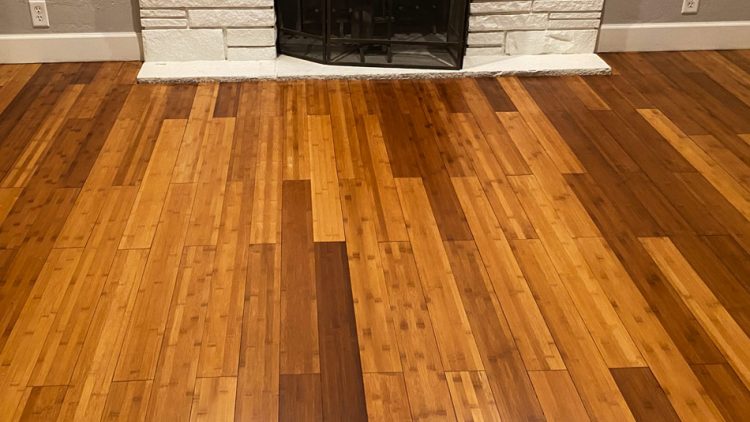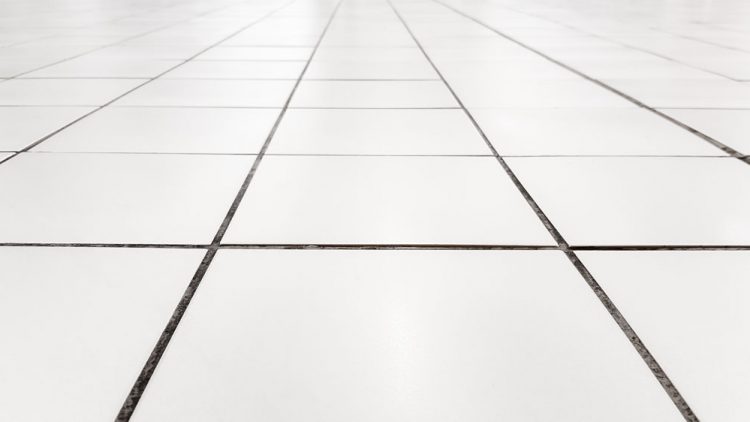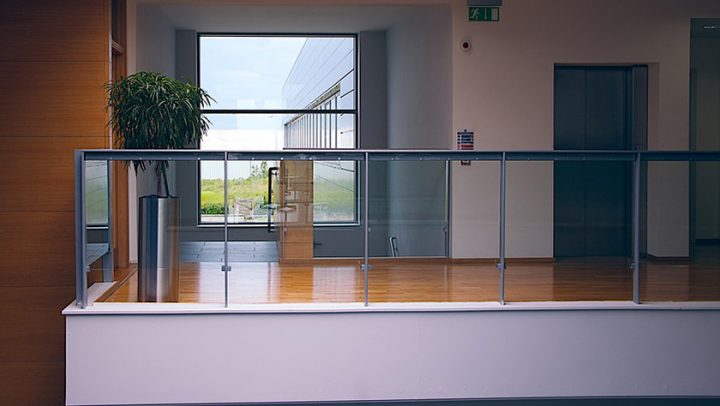Sustainable flooring is flooring that is produced in an environmentally friendly way. This means that the materials used to make the flooring are renewable or recycled, and that the production process does not harm the environment.
There are many different types of sustainable flooring available, including:
- Bamboo: Bamboo is a fast-growing grass that is harvested without the need for replanting. It is a strong and durable material that can be used for a variety of flooring applications.
- Cork: Cork is a natural material that is made from the bark of the cork oak tree. It is a soft and resilient material that is resistant to water and mold.
- Reclaimed wood: Reclaimed wood is wood that has been salvaged from old buildings or structures. It is a sustainable option because it reduces the demand for new wood.
- Natural stone: Natural stone, such as marble, granite, and travertine, is a durable and long-lasting material that can be used for flooring. It is a sustainable option because it is a natural material that does not require a lot of energy to produce.
- LVT (Luxury vinyl tile): LVT is a type of flooring that is made from vinyl but has the look and feel of real wood or stone. It is a sustainable option because it is made from recycled materials and is easy to recycle.
When choosing sustainable flooring, it is important to consider the following factors:
- The environmental impact of the materials used to make the flooring.
- The energy used to produce the flooring.
- The durability of the flooring.
- The ease of maintenance and cleaning.
By choosing sustainable flooring, you can help to reduce your impact on the environment and create a more sustainable home.
Bamboo Flooring
Bamboo flooring is a type of flooring made from bamboo, a fast-growing grass. Bamboo is a sustainable material that can be harvested without the need for replanting. It is a strong and durable material that can be used for a variety of flooring applications.
There are two main types of bamboo flooring: solid bamboo flooring and engineered bamboo flooring:
Solid bamboo flooring is made from solid pieces of bamboo that are glued together. It is a more expensive option, but it is also the most durable.
Engineered bamboo flooring is made from bamboo strips that are glued together and then topped with a veneer. It is a less expensive option, but it is not as durable as solid bamboo flooring.
Here are some of the pros and cons of bamboo flooring:
Pros:
- Sustainable and renewable material
- Strong and durable
- Easy to care for
- Versatile and can be stained or finished to match any décor
- Hypoallergenic
Cons:
- Can be more expensive than other types of flooring
- Not as durable as solid wood flooring
- Can be susceptible to dents and scratches
Overall, bamboo flooring is a good choice for those who are looking for a sustainable, durable, and easy-to-care-for flooring option.
Here are some additional tips for choosing bamboo flooring:
- Consider the traffic level in the area where the flooring will be installed. If the area will receive heavy traffic, choose a thicker and more durable grade of bamboo flooring.
- Choose the right finish for your needs. If you have pets or children, choose a finish that is scratch-resistant.
- Have the flooring professionally installed to ensure that it is installed correctly.
Cork Flooring
Cork flooring is a type of flooring made from the bark of the cork oak tree. It is a natural material that is soft, resilient, and water-resistant. Cork flooring is also a good insulator, which can help to keep your home cool in the summer and warm in the winter.
There are two main types of cork flooring: solid cork flooring and cork tiles.
Solid cork flooring is made from solid pieces of cork that are glued together. It is a more expensive option, but it is also the most durable.
Cork tiles are made from cork that is sliced into thin sheets and then glued to a backing material. They are a less expensive option, but they are not as durable as solid cork flooring.
Cork flooring is available in a variety of colors and finishes, so you can find the perfect look for your home. It is also relatively easy to care for, making it a good choice for busy families.
Here are some of the pros and cons of cork flooring:
Pros:
- Sustainable and renewable material
- Soft and comfortable underfoot
- Water-resistant and easy to clean
- Good insulator
- Hypoallergenic and non-toxic
Cons:
- Can be more expensive than other types of flooring
- Not as durable as solid wood flooring
- Can be susceptible to dents and scratches
Overall, cork flooring is a good choice for those who are looking for a sustainable, comfortable, and easy-to-care-for flooring option.
Here are some additional tips for choosing cork flooring:
- Consider the traffic level in the area where the flooring will be installed. If the area will receive heavy traffic, choose a thicker and more durable grade of cork flooring.
- Choose the right finish for your needs. If you have pets or children, choose a finish that is scratch-resistant.
- Have the flooring professionally installed to ensure that it is installed correctly.
Reclaimed Wood Flooring
Reclaimed wood flooring is made from wood that has been salvaged from old buildings or structures. It is a sustainable option because it reduces the demand for new wood. Reclaimed wood can be used to create a unique and stylish look in your home.
There are many different types of reclaimed wood flooring available, including:
- Hardwood: Hardwood reclaimed wood is made from hardwood trees, such as oak, maple, and walnut. It is a durable and long-lasting material that can be used for a variety of flooring applications.
- Softwood: Softwood reclaimed wood is made from softwood trees, such as pine and fir. It is less durable than hardwood reclaimed wood, but it is also less expensive.
- Tropical wood: Tropical wood reclaimed wood is made from trees that are native to tropical regions. It is a beautiful and exotic material, but it can be expensive.
Reclaimed wood flooring is available in a variety of colors and finishes, so you can find the perfect look for your home. It is also relatively easy to care for, making it a good choice for busy families.
Here are some of the pros and cons of reclaimed wood flooring:
Pros:
- Sustainable and renewable material
- Unique and stylish look
- Durable and long-lasting
- Easy to care for
- Can be customized to match any décor
Cons:
- Can be more expensive than other types of flooring
- May contain defects, such as knots and cracks
- May require special care and maintenance
Overall, reclaimed wood flooring is a good choice for those who are looking for a sustainable, unique, and stylish flooring option.
Here are some additional tips for choosing reclaimed wood flooring:
- Consider the traffic level in the area where the flooring will be installed. If the area will receive heavy traffic, choose a thicker and more durable grade of reclaimed wood flooring.
- Choose the right finish for your needs. If you have pets or children, choose a finish that is scratch-resistant.
- Have the flooring professionally installed to ensure that it is installed correctly.
Natural Stone
Natural stone flooring is a type of flooring made from natural stone materials, such as marble, granite, travertine, and slate. It is a durable and long-lasting material that can be used for a variety of flooring applications.
Here are some of the most popular types of natural stone flooring:
- Marble: Marble is a metamorphic rock that is known for its beautiful and varied colors. It is a durable and easy-to-clean material, but it can be susceptible to staining.
- Granite: Granite is an igneous rock that is known for its strength and durability. It is a non-porous material that is resistant to stains and moisture.
- Travertine: Travertine is a sedimentary rock that is known for its unique honeycomb pattern. It is a durable and easy-to-clean material, but it can be susceptible to etching.
- Slate: Slate is a metamorphic rock that is known for its smooth and uniform finish. It is a durable and easy-to-clean material, but it can be slippery when wet.
Natural stone flooring is available in a variety of colors, textures, and finishes, so you can find the perfect look for your home. It is also relatively easy to care for, making it a good choice for busy families.
Here are some of the pros and cons of natural stone flooring:
Pros:
- Durable and long-lasting
- Easy to clean and maintain
- Variety of colors, textures, and finishes
- Can add value to your home
Cons:
- Can be expensive
- Can be slippery when wet
- May require sealing to protect it from stains and moisture
- Can be difficult to install
Overall, natural stone flooring is a good choice for those who are looking for a durable, elegant, and timeless flooring option.
Here are some additional tips for choosing natural stone flooring:
- Consider the traffic level in the area where the flooring will be installed. If the area will receive heavy traffic, choose a harder and more durable type of stone.
- Choose a stone that is compatible with the style of your home.
- Have the flooring professionally installed to ensure that it is installed correctly.
Luxury Vinyl Tile Flooring
LVT is a type of flooring that is made from vinyl but has the look and feel of real wood or stone. It is a popular choice for its durability, affordability, and ease of installation.
LVT is made up of a few layers:
- The top layer is a wear layer that protects the flooring from scratches and dents.
- The middle layer is a core that provides strength and stability.
- The bottom layer is a backing that provides insulation and moisture resistance.
LVT is available in a variety of colors, textures, and finishes, so you can find the perfect look for your home. It is also relatively easy to care for, making it a good choice for busy families.
Here are some of the pros and cons of LVT flooring:
Pros:
- Durable and long-lasting
- Affordable
- Easy to install
- Easy to care for
- Variety of colors, textures, and finishes
- Waterproof and resistant to stains
- Can be used in wet areas
Cons:
- Not as durable as natural stone or hardwood
- Can be noisy when walked on
- May not feel as “authentic” as natural materials
Overall, LVT flooring is a good choice for those who are looking for a durable, affordable, and easy-to-care-for flooring option.
Here are some additional tips for choosing LVT flooring:
- Consider the traffic level in the area where the flooring will be installed. If the area will receive heavy traffic, choose a thicker and more durable grade of LVT flooring.
- Choose a type of LVT flooring that is compatible with the style of your home.
- Have the flooring professionally installed to ensure that it is installed correctly.





